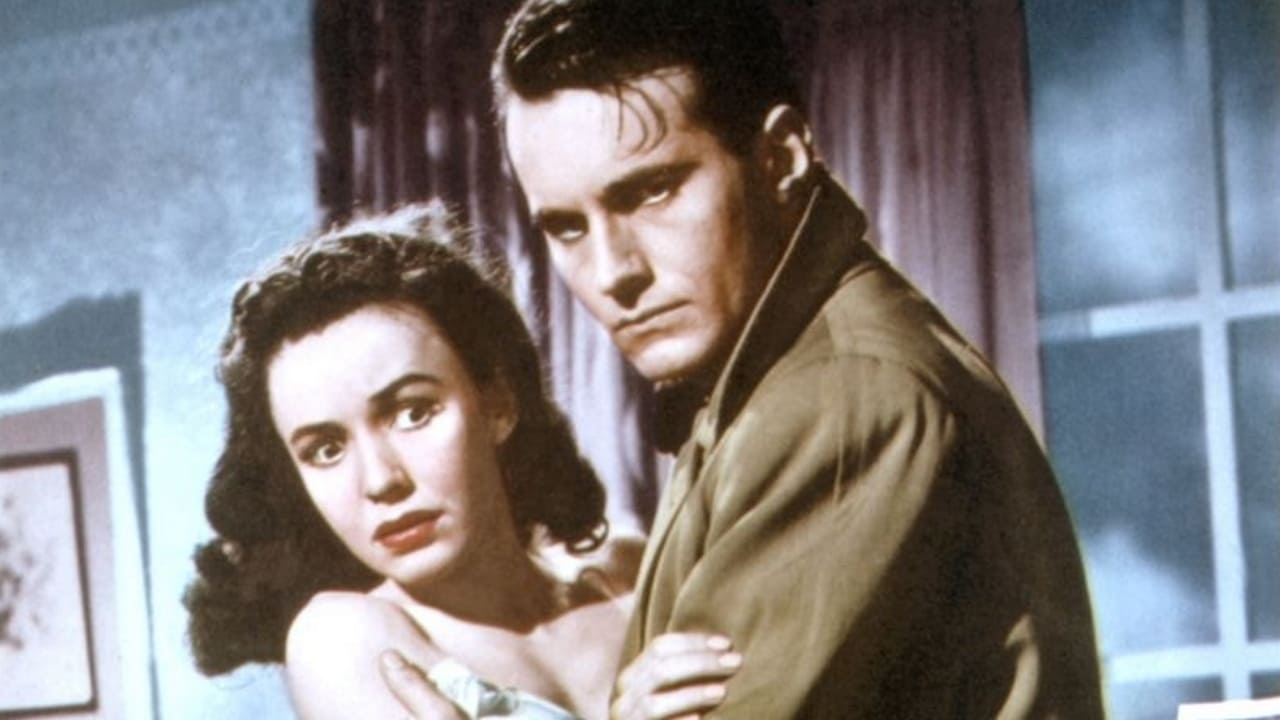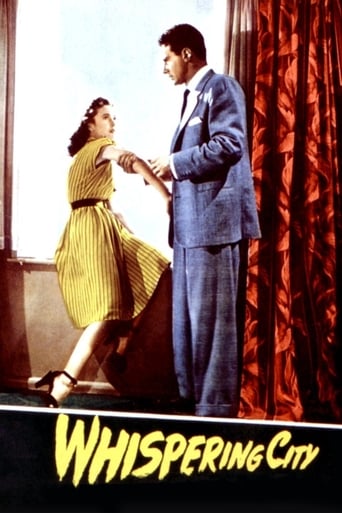

Surprisingly incoherent and boring
... View MoreLet's be realistic.
... View MoreThis is one of the few movies I've ever seen where the whole audience broke into spontaneous, loud applause a third of the way in.
... View MoreIt's easily one of the freshest, sharpest and most enjoyable films of this year.
... View MoreIntriguing thriller in Quebec involving all kinds of suspense tricks including old murders and new, fake murders and phantoms, haunting memories and romance, suicide and a poor brilliant pianist working on his debut under the terror of his intolerably intolerant wife. The intrigue is difficult to follow as it develops all the time with surprising turns into upside down turbulence, but it nevertheless sticks together and adds up in the end. If you regard the piano concerto ('the Quebec concerto') as the hub around which everything evolves, you'll find it a rather masterful composition of intrigue, cinematography and music - in brief, nothing is actually missing in this intricately spiced stew of a very complicated but exotic repast. It's even worth watching again for enjoying the details.
... View More"Whispering City" is an Eagle-Lion production that was made in Quebec. It's the story of an evil lawyer (dare I be redundant?) who is also quite mentally imbalanced. One of his supposed friends and clients is in trouble--his wife is also very imbalanced and has been making accusations that the husband has been trying to kill her. But the husband is innocent--and his life has been hell due to this crazy lady's erratic behaviors and hateful disposition. He goes to this lawyer to talk about this--not knowing that the lawyer (Paul Lukas) has an incredibly evil plan. And, when the unstable wife kills herself, the lawyer hides all the evidence that would exonerate the husband and makes the man think perhaps he DID kill his wife! Then, the lawyer springs his trap--he announces that he will get his 'friend' acquitted--provided the friend first murder someone for him! Can this innocent man be driven to kill? And, does he even realize he's not guilty, as the lawyer got him very drunk and has been trying to convince him that he really has already killed? And, if the innocent man goes to the authorities, what will happen? After all, the evidence does point to him being guilty.Despite having an overly complicated plot (and I've omitted a lot of it in the above paragraph), this is a dandy thriller. Despite its humble origins, the film is very well acted, tense and exciting. However, it's very likely you won't find it unless you download it for free at archive.org, as the film is quite obscure and in the public domain.
... View MoreMary Anderson is a reporter investigating an old murder case in Quebec. Paul Lukas is a high-end lawyer who was the murderer and, for some reason, he resents Anderson's poking into the crime and "opening old wounds." Boy, would he like her to disappear.Lukas has a friend, Helmut Dantine, who is a brilliant musician married to a shrew. One night, after a particularly bitter argument with her, Dantine shows up plastered at Lukas's house and Lukas puts him to bed. Then he sneaks out into the night with the intention of murdering the shrew, blaming it on Dantine, and blackmailing Dantine into murdering Anderson so that she won't uncover Lukas's earlier crime. Got that? It turns out to be unnecessary for Lukas to murder Dantine's wife because she has already committed suicide and left a note behind, explaining that she couldn't go on living any longer because her nails never dried quickly enough.Lukas, his mind ever dirty, pinches the suicide note and arranges a few other details to make Dantine look like the murderer. The blackmail plan goes ahead. Dantine can't remember a thing from the night before. Lukas tells him that he showed up drunk and bragged about having killed his wife. Lukas is in a position to get him out from under the threat of the hangman's noose, but only if he takes Mary Anderson to Montmorency Falls and throws her in.A slight problem develops when Dantine and Anderson fall in love. Lukas's scheme unravels.It's a B feature and the usual clichés are not avoided. Mary creeps through a darkened house with a candle while an eyeball peers at her through a crack in the door -- that sort of thing. But it transcends the usual cheap mystery if only because it's set and photographed in Quebec, the most nearly European city in North America. The director doesn't go out of his way to give us a tourist's eye view, as Hitchcock did in "I Confess." There is no shoot out in the Château Frontenac. But we see enough of the location to appreciate its verticality and its stony elegance and sometimes severe beauty.Paul Lukas plays the kind of villain he did in "The Lady Vanishes." He's perfectly reasonable, he appreciates the splendor of Dantine's piano concerto -- of which we hear quite a lot -- but he's ruthless too and a little mad.Dantine has chiseled features, like a Bernini sculpture, but their default position is a stern and unyielding frown. He was locked into roles like this because he just couldn't do anything else. On those rare occasions when he tries to smile, the viewer can almost hear the agonized creak of unused mechanisms.Mary Anderson isn't a bravura performer either. She's not stunningly beautiful, not sexy, and her acting achieves a certain plateau and then quits. The thing is that she is eminently likable. She's petite, skinny, and vulnerable. One can imagine being nurtured by her -- she was the nurse in Hitchcock's "Lifeboat" -- but she could never play the scolding wife, for instance.It's a diverting and pleasant feature with no pretensions.
... View MoreWhispering City's locale is Quebec City, that odd European fortress set high over the St. Lawrence River; it comes to Gallic life more fully here than in Alfred Hitchcock's I Confess, made a few years later.The death in an auto accident of a long-retired actress spurs crime reporter Mary Anderson to work up a feature story; the woman was sent to a sanitarium years before for insisting that her fiance's death was actually murder. Pursuing a lead, Anderson interviews a prosperous benefactor of the arts (Paul Lukas), who seems curiously bothered by the visit. Currently, Lukas serves as the patron of an impoverished young pianist/composer (Helmut Dantine; the two actors both appeared in Watch on the Rhine). Dantine is working on something called The Quebec Concerto; an oddly scored work, its orchestra features a Sousaphone rearing its brassy bell.An overcomplicated but still compelling plot involves Dantine's disturbed shrew of a wife, who's dependent on injections to make her sleep; the discovery of her suicide, which is made to look like murder (well, it seemed to work once); a blackmail scheme to engineer another murder; and a faked death made to look like yet another murder. (Eagle-Lion was not known for the elegant simplicity of its plots.)Oddly, it all works, if a bit creakily. Mary Anderson suggests two-thirds Teresa Wright and a third Bonita Granville; the latter impression no doubt derives from her sleuthing around in a jaunty tam, like Nancy Drew. She has the distinction (as does the director, the short-lived Fedor Ozep, as he's credited here) of helping to make the best Nancy Drew mystery ever released. That's faint praise, but praise nonetheless.
... View More